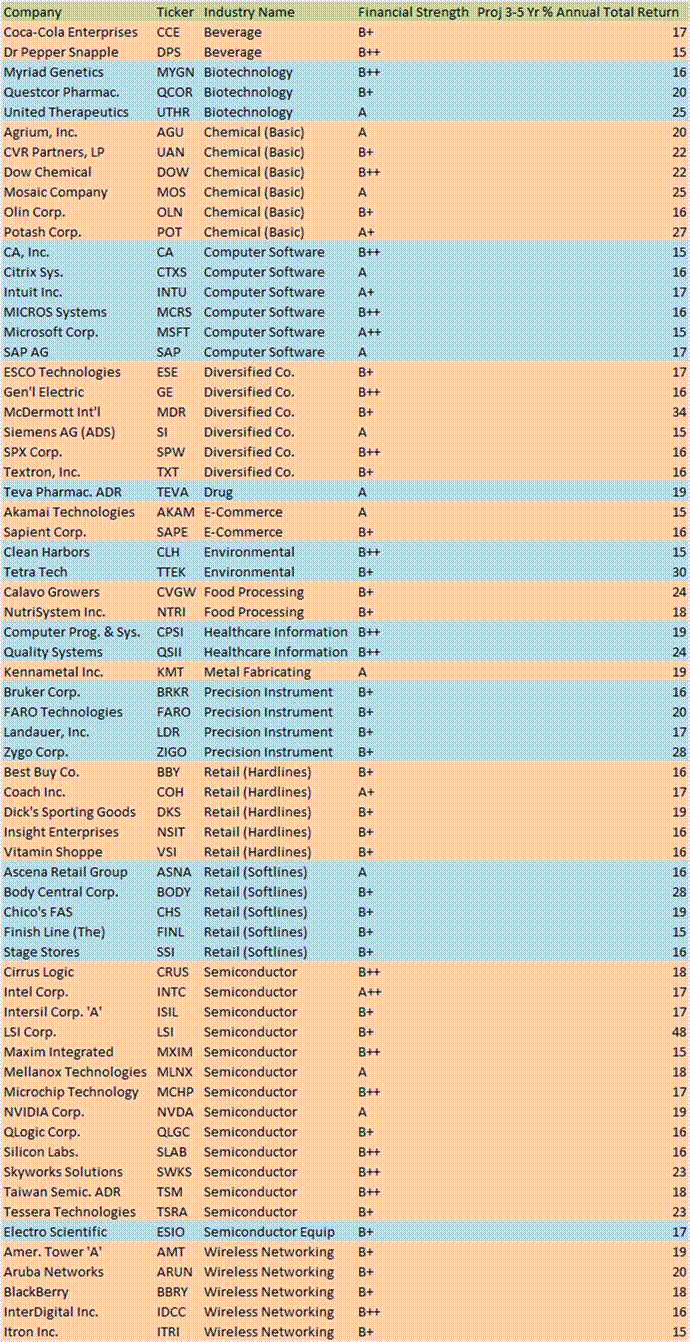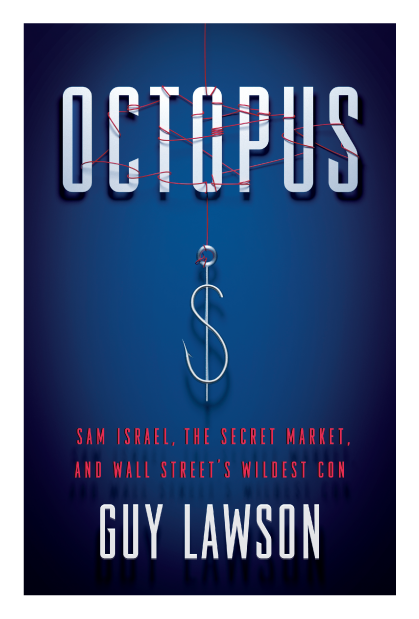Industry Ranks August 2013
My main industry model is illustrated in the graphic. Green industries are cold. Red industries are hot. If you like to play momentum, look at the red zone, and ask the question, ?Where are trends under-discounted?? Price momentum tends to persist, but look for areas where it might be even better in the near term.
If you are a value player, look at the green zone, and ask where trends are over-discounted. Yes, things are bad, but are they all that bad? Perhaps the is room for mean reversion.
My candidates from both categories are in the column labeled ?Dig through.?
You might notice that this time, I have no industries from the red zone.? That is because the market is so high.? I only want to play in cold industries.? They won?t get so badly hit in a decline, and they might have some positive surprises.
If you use any of this, choose what you use off of your own trading style. If you trade frequently, stay in the red zone. Trading infrequently, play in the green zone ? don?t look for momentum, look for mean reversion.? I generally play in the green zone because I hold stocks for 3 years on average.
Whatever you do, be consistent in your methods regarding momentum/mean-reversion, and only change methods if your current method is working well.
Huh? Why change if things are working well? I?m not saying to change if things are working well. I?m saying don?t change if things are working badly. Price momentum and mean-reversion are cyclical, and we tend to make changes at the worst possible moments, just before the pattern changes. Maximum pain drives changes for most people, which is why average investors don?t make much money.
Maximum pleasure when things are going right leaves investors fat, dumb, and happy ? no one thinks of changing then. This is why a disciplined approach that forces changes on a portfolio is useful, as I do 3-4 times a year. It forces me to be bloodless and sell stocks with less potential for those with more potential over the next 1-5 years.
I like some technology names here, some telecom related, some basic materials names, particularly those that are strongly capitalized.
I?m looking for undervalued industries. I?m not saying that there is always a bull market out there, and I will find it for you. But there are places that are relatively better, and I have done relatively well in finding them.
At present, I am trying to be defensive. I don?t have a lot of faith in the market as a whole, so I am biased toward the green zone, looking for mean-reversion, rather than momentum persisting. The red zone is pretty cyclical at present. I will be very happy hanging out in dull stocks for a while.
That said, some dull companies are fetching some pricey valuations these days, particularly those with above average dividends.? This is an overbought area of the market, and it is just a matter of time before the flight to relative safety reverses.
The Red Zone has a Lot of Financials; be wary of those.? I?m considering paring back my insurers.
What I find fascinating about the red momentum zone now, is that it is loaded with noncyclical companies. That said, it has been recently noted in a few places how cyclicals are trading at a discount to noncyclicals at present.
In the green zone, I picked most of the industries. If the companies are sufficiently well-capitalized, and the valuation is low, it can still be an rewarding place to do due diligence.
That said, it is tough when noncyclical companies are relatively expensive to cyclicals in a weak economy. Choose your poison: high valuations, or growth that may disappoint.
But what would the model suggest?
Ah, there I have something for you, and so long as Value Line does not object, I will provide that for you. I looked for companies in the industries listed, but in the top 5 of 9 balance sheet safety categories, an with returns estimated over 15%/year over the next 3-5 years. The latter category does the value/growth tradeoff automatically. I don?t care if returns come from mean reversion or growth.
But anyway, as a bonus here are the names that are candidates for purchase given this screen. Remember, this is a launching pad for due diligence, not hot names to buy.
I’ve loosened my criteria a little because the market is so high, but I figure I will toss out? lot when i do my quarterly evaluation of the companies that I hold for clients and me.




